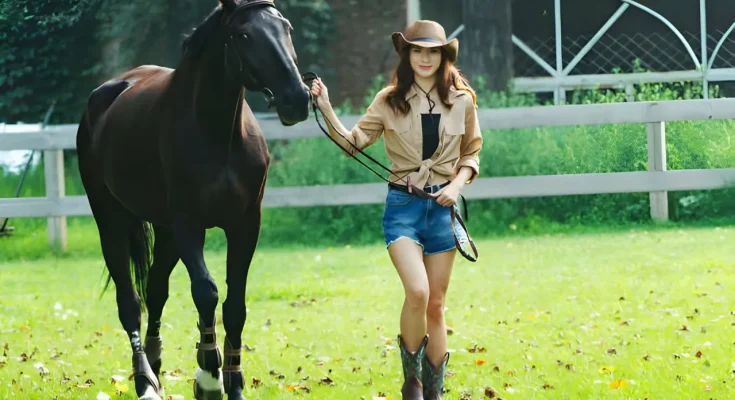Horses live symbols of elegance and importance, they really touch our hearts. Understanding the details behind their lives is very important for their well-being as they get older. This guide starts a trip into the world of horse lifespan, growing old, and care, giving special understandings made for both owners and caretakers. From seeing quiet signs of growing old to making special care plans, we shine light on key parts of horse length of life. Let us take this path together, shining light on the way to nurturing and protecting these magnificent beings throughout their whole lives.
Developmental Stages in Equines
Newborn Phase (Birth to Weaning)
During this initial phase, foals rely heavily on their mothers for sustenance and care.
Baby Stage (4 to 7 months old)
From 4 to 7 months, baby horses start changing from drinking milk to eating plants and grains.
Young Phase (Weaning to 3 years)
This time is when horses grow quickly, experiencing a lot of physical changes until about 3 years old.
The stage for Grown Horses (3 to 15 years old)
Most horses become very good at sports and activities during this time, after they have finished growing a lot.
Old Age Phase (15+ years)
After turning 15 years old, horses progressively decelerate and require more assistance for the best wellness.
Horse types live for different lengths of time. Smaller kinds like ponies often live the longest, sometimes past their forties.
Factors Affecting Horse Lifespan
Many things affect how long a horse lives, including size, genes from parents, how it is bred, and the care and place it lives. These things work together to impact the horse’s total time alive. Size and genes play big roles in deciding if it will get sick, which is why breeding horses the right way is important. Also, a caring place helps a horse stay healthier for longer. Knowing these details helps people who own or take care of horses make plans to care for them in the best way to help them live long, healthy lives. By choosing good breeding practices and providing a caring place, horse lovers can strongly impact how good and how long their horses’ lives are.
Breed Variations in Lifespan
Horse breeds live for different lengths of time because of what makes them unique. Looking at the differences between breeds gives useful knowledge about choosing a breed and how to take care of it. Each breed’s special health problems and past uses also show how lifespan varies. Understanding these details lets people make smart choices about what breed to get and adjust care to fit each breed’s needs. Knowing how a breed’s traits work together helps increase how long horses live and stay healthy for different breeds. So learning about the differences in how long breeds live helps make care plans to keep horses as healthy as possible for as long as possible no matter the breed.
Understanding Horse Aging
Horses show clear signs of getting older as time passes. Their coat, muscles, and teeth change with age. These visible changes mark how long a horse has lived. Older horses often deal with health problems like sore joints, dental problems, and issues with how their bodies use food. These can hurt how comfortable and happy a horse is. To help senior horses stay healthy, regular checkups from a vet are very important. Exams let vets find and treat problems early. Preventing sickness also helps slow down new issues or make current ones worse.
Owners who focus on care before problems and use prevention can best help older horses stay healthy and live long. Learning how horses change with age lets caretakers give just what each horse needs when older. This lets aging horses get the help they need to feel good even as they get gray.
Strategies for Increasing
There are key steps to help horses live a long time. These include giving good dental care, food, exercise, time with others, and shots. It is imperative to adjust care for each aging horse’s needs. This enhances their health and happiness. Regular vet checkups and prevent problems from age are also crucial. By including these things in care routines, horse owners and caretakers can help their horses be healthy and live a long time. With proactive steps and close watching, horses can feel good and enjoy lives full of energy and strength. It is through working together that we can care for and protect these amazing animals through all their years.
How to Care for a Senior Horse
To ensure the longevity and well-being of your senior horse, it’s essential to implement comprehensive care practices. By following these recommendations, you can extend your horse’s lifespan and enhance its overall quality of life.
Nutrition
Give food that provides nutrients and is easy to eat, as older horses may have dental problems making chewing hard. Consider using feed for seniors or add-ons to meet nutritional needs well.
Hydration
Check your horse’s water levels often by looking in its mouth. Drinking enough water is very important for health and feeling good, especially as horses get older.
Shelter
Older horses need more protection from the weather. In hot weather, make sure they stay cool with fans or shade. In cold weather, blankets can keep horses warm and cozy.
Vaccination
Vaccinate your aging horse carefully, as its immune system may get weaker with time. Watch for bad reactions and consider changing the vaccination schedule to lower risks. Adjust as needed based on the horse.
Deworming:
Give deworming medicine regularly, usually every 2 months, to control worms inside the body. Also, think about treatment every 6 months for tapeworms based on where you live and what your vet says.
Follow these senior horse care guidelines to help your horse live longer and feel better as it ages. This will improve its health and make it happier.


